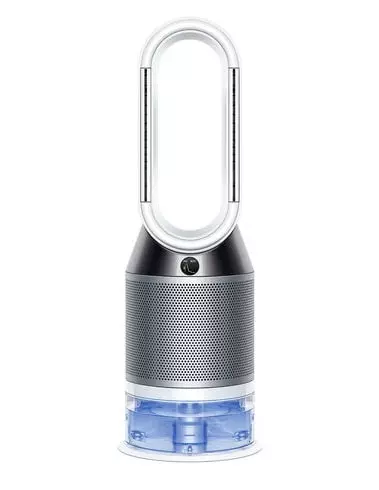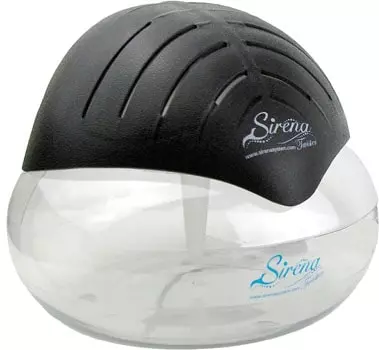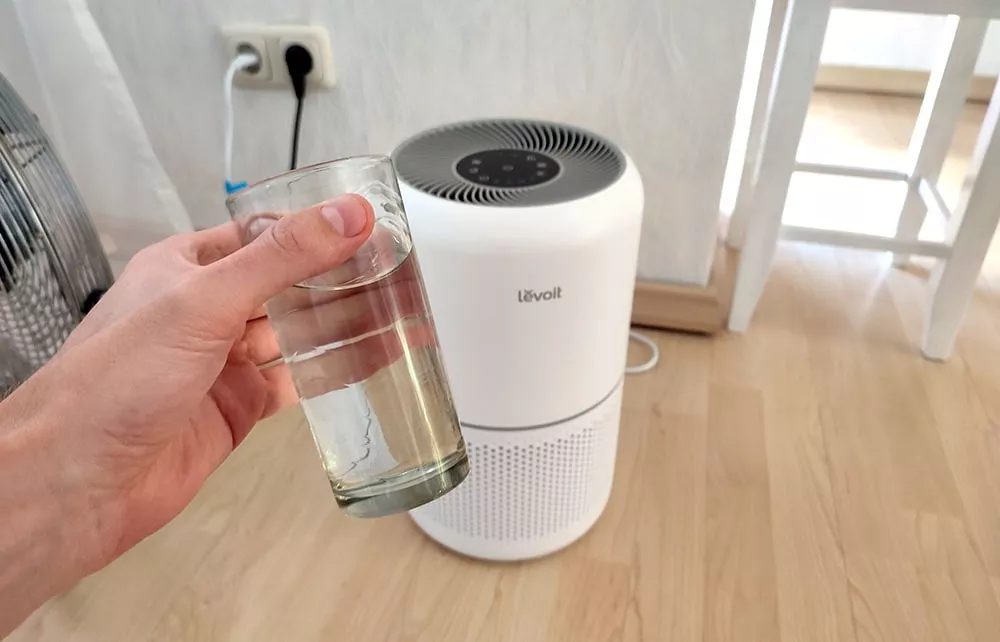Do air purifiers need water? And do you have to replace water regularly? Do you need to put in any maintenance work?
This quick post is going to answer all of that. Luckily, it’s very simple:
Quick answer: No, most air purifiers never need water. Air purifiers pass air through a dry HEPA filter, which needs replacement every 6-12 months. Air purifiers with built-in humidifiers, however, need water replacements occasionally. But in this case, the water is not needed for air purification.
Before you leave, let’s have a closer look. I am going to tell you why air purifiers work best when fully dry.
Also, I’ll list my recommended air purifier which does not use water.
Why HEPA Air Purifiers do not need water
Every effective air purifier (that is backed up by lab tests) uses a HEPA filter. Sometimes the HEPA filter is layered with additional filters, such as an activated charcoal filter.
The heart of every air purifier, is, however, the HEPA part.
HEPA filters contain a very fine web of fibers. And the key principle that makes a HEPA filter work is that airborne particles are so lightweight, they wiggle around a lot.
And the more particles wiggle, the easier they are to catch.
( Mathematically speaking: The chance of collision with the filter’s fibers increases )
Imagine you’re driving on a highway. And instead of staying in your lane, you switch lanes every few seconds. Naturally, the chance of collision with another object increases.
So, even though many particles are so tiny that they could fly straight through the filter web, they are eventually caught by the fibers.
For a HEPA air purifier to work, particles must move freely.
Exceptions: Air Purifiers that use water
As always, there are exceptions to the rule. Here are two of them:
Air Purifiers with Built-in Humidifiers: A Questionable Combo
Air purifiers with built-in humidifiers of course need water. The water, however, is solely for humidification and has nothing to do with the purification.
One example is the Dyson Pure Humidify+Cool, which is a hybrid air purifier and humidifier.
 This Dyson Pure Humidifier and air purifier has a tank of water at the base of it. Occasionally, it needs refills.
This Dyson Pure Humidifier and air purifier has a tank of water at the base of it. Occasionally, it needs refills.
Running an air purifier and a humidifier at the same time, is, however, often not the best idea.
Humidifiers can decrease HEPA filter lifespan. So, I don’t really like air purifiers with built-in humidifiers.
Air Washers: They don’t purify the air at all
Air washers, such as this Sirena Twister Air Washer (click to see it on amazon) use water to “wash” the air.
However, water has next to no purifying properties.
Imagine the air in your room is polluted with tiny particles smaller than a micrometer.
When you force polluted air from your room through water, the polluted air forms bubbles. Inside the bubbles, the air remains polluted.
When the air bubbles leave the water and pop, they release the polluted air into your room again.
Of course, a fraction of the particles will stick to the water. To be precise, the small part of particles that by accident touch the water surface from within an air bubble will be filtered.
But it is by far no way to purify the air.
The smallest particles are possibly even repelled by water surface tension.
And, on top of that, water can’t purify gases such as volatile organic compounds (VOCs), formaldehyde, since gases form their own bubbles and escape the water again.
So, air washers might pick up a few dust particles here and there. But they don’t reliably purify the air at all.
“The word “air purifier” is at best a stretch.”
air washer customer on amazon
“Real” air purifiers always use a HEPA filter.
 This “air washer”, which allegedly filters air using water is largely useless and unreliable.
This “air washer”, which allegedly filters air using water is largely useless and unreliable.
Maintenance Needs for HEPA Air Purifiers
But even though air purifiers never use water, they still need occasional maintenance.
HEPA filters degrade over time and need replacement every 6-12 months.
Additionally, many air purifiers such as the Nuwave OxyPure come with a set of multiple filters, all of which are washable and last practically forever, except the HEPA filter.
Coway Airmega air purifiers also have a washable pre-filter.
Nuwave and Coway are both high-end products.
Cheaper air purifiers that use just a HEPA filter don’t come with washable filters. These only require HEPA filter replacements and nothing else.
One example are Levoit Core air purifiers, my favorite air purifiers.
Recommended Air Purifier: Effective & low maintenance
My favorite air purifier is the Levoit Core 300(click here to view it on amazon). It’s a simple but highly effective air purifier, backed up by experimental pollution tests.
I have this particular model myself and I am happy with it.
Also, I use this model as a benchmark for all air purifier reviews I conduct on this channel. I’ve even compared it to expensive Dyson air purifiers before. The result: The Levoit Core purifies the air just as well as premium air purifiers.
The reason is that air purifiers are technically just fans that blow air through a filter. So, whether an air purifier is good or bad depends solely on the filter’s quality.
The Levoit Core series air purifiers come with a highly effective HEPA + activated carbon filter.
The HEPA filter filters 99.97% of particles from the air, while the activated carbon filtration layer removes odors and gas molecules.
Conclusion: Do air purifiers need water?
Air purifiers never need water. And those that do are, at best, questionable products. Pure HEPA filter air purifiers are usually the best choice for purifying the air in your living space.
Fancy add-ons like a water-based filter (such as in air washers) or a built-in humidifier (such as in hybrid air purifiers) are not necessary to purify the air. And, to be more precise:
Water does not contribute to air purification.
